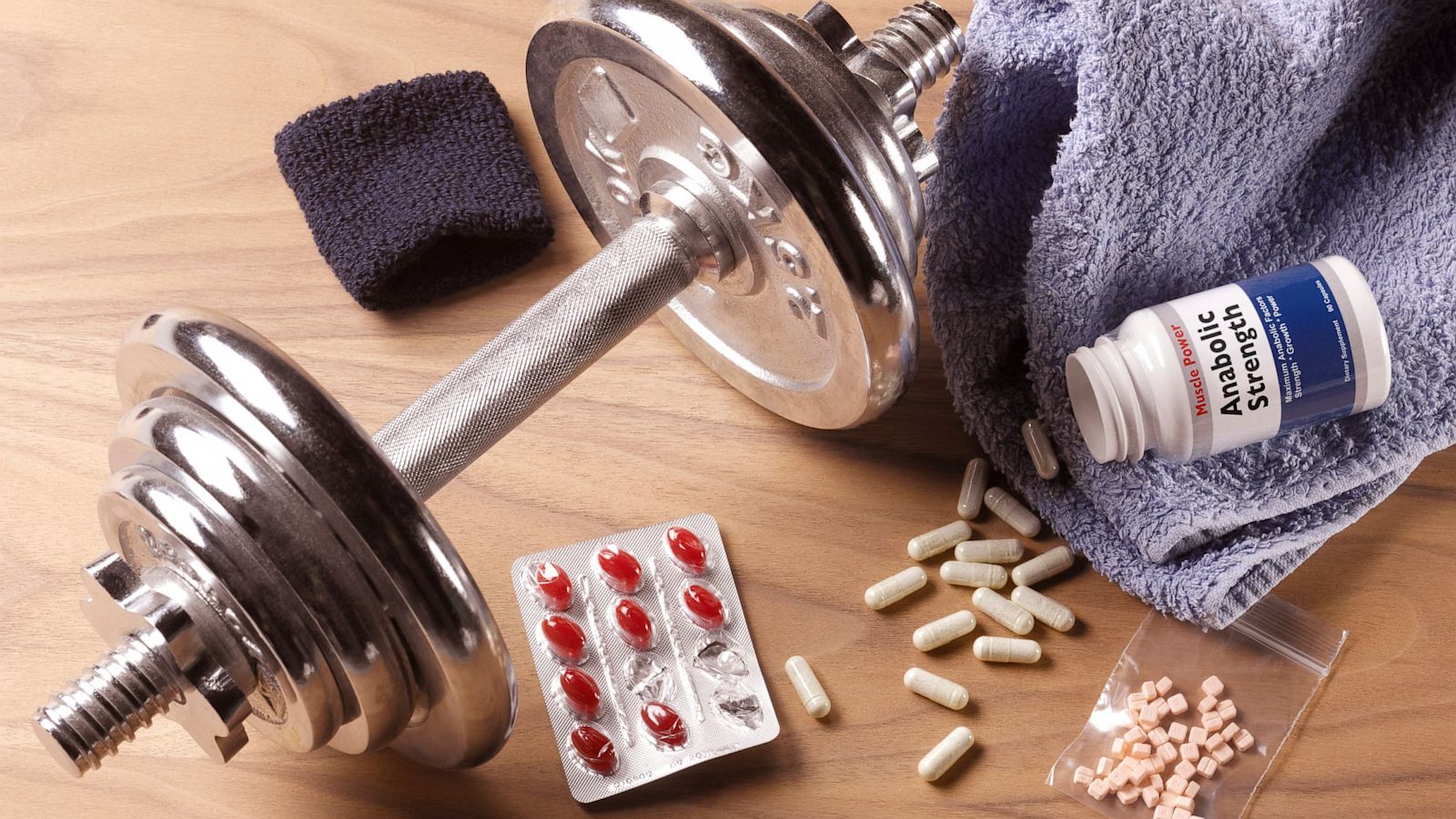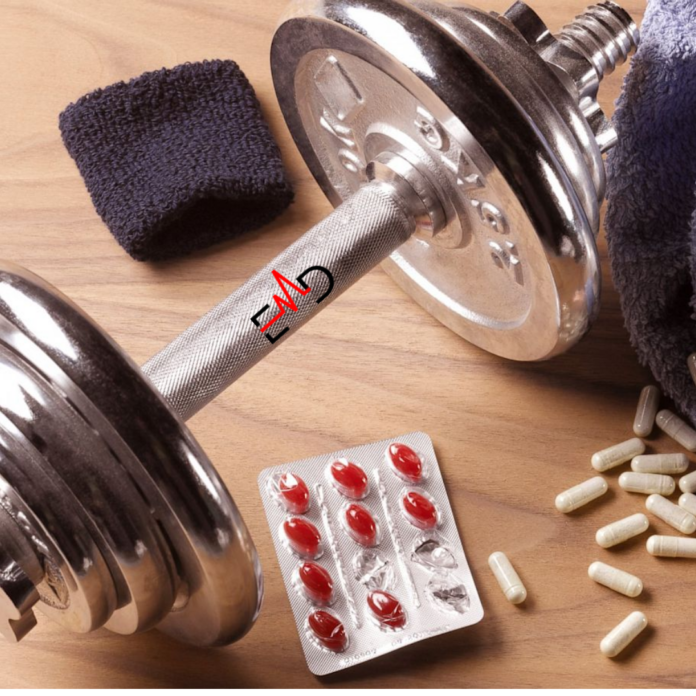Exercise Daily – Steroids, specifically anabolic-androgenic steroids (AAS) or performance-enhancing drugs (PEDs), have remained a contentious issue within the realm of athletics. Athletes continuously seek avenues to amplify their performance and secure a competitive advantage, with some resorting to the use of steroids. This discourse delves into the impact of steroids on athletes’ performance, elucidating the benefits, risks, and enduring consequences entwined with their utilization.
Athletes who use anabolic steroids may experience heightened performance in certain realms, attributed to the performance-enhancing effects of these substances. However, the allure of enhanced performance must be weighed against the potential hazards. Anabolic steroids can cause a spectrum of side effects, ranging from mild to severe, with continued use exacerbating the risks. The side effects of anabolic steroid abuse encompass both physical and psychological ramifications, which can manifest in myriad ways.
How Steroids Work
Steroids mimic the effects of testosterone, a hormone naturally produced in the body. Testosterone is crucial in developing muscle mass, bone density, and strength. When athletes use steroids, the synthetic hormones enter their bloodstream and bind to specific receptors in the cells, including muscle cells. This binding activates the production of proteins, leading to increased muscle growth and enhanced athletic performance.
The mechanisms through which anabolic steroids work underscore their association with improved sports performance. Yet, the clandestine use of these substances, often as designer drugs, underscores the ethical and legal implications. Steroids are frequently banned substances prohibited by sporting organizations such as the National Collegiate Athletic Association (NCAA) to curb the illicit use and doping practices prevalent across sports.

Types of Steroids
The most common type of steroid used by athletes is anabolic steroids. Anabolic steroids are synthetic substances that resemble testosterone in structure and function. They are designed to promote muscle growth and improve physical performance. Performance-enhancing drugs encompass a broader category that includes various substances used to enhance athletic performance, such as growth hormone, erythropoietin (EPO), and diuretics.
Short-Term Effects of Steroid Use
The short-term effects of steroid use can be enticing for athletes looking for immediate gains. One of the primary benefits is an increase in muscle mass and strength. Steroids stimulate protein synthesis, allowing muscles to repair and grow acceleratedly. This leads to rapid muscle size and strength gains, providing athletes a competitive advantage. Additionally, steroids can improve endurance and reduce fatigue, allowing athletes to train harder and longer.
Long-Term Effects of Steroid Use
While the short-term effects of steroids may be appealing, the long-term consequences can be severe. Prolonged use of steroids can have detrimental effects on both physical and mental health. Physically, steroid abuse can lead to cardiovascular problems, including high blood pressure, heart attacks, and strokes. Liver damage is also a concern, as excessive steroid use can cause liver tumors and cysts. Moreover, the hormonal imbalances caused by steroids can disrupt the normal functioning of the reproductive system.
Side Effects of Steroid Use
Steroid use is associated with a range of side effects, some of which can be life-threatening. Cardiovascular effects include an increased risk of blood clots, heart disease, and strokes. Liver damage can manifest as jaundice, liver tumors, and cholestasis. In males, steroid use can lead to testicular shrinkage, infertility, and the development of breast tissue. Females may experience masculinizing effects, such as deepening of the voice, facial hair growth, and menstrual irregularities.
Dangers of Steroid Abuse
Abusing steroids can have significant dangers and consequences. One of the primary risks is addiction and dependence. The body may become reliant on the synthetic hormones, leading to withdrawal symptoms when discontinuing use. These symptoms can include fatigue, depression, mood swings, and insomnia. Furthermore, the misuse of steroids is illegal in many countries, and athletes who are caught using them can face serious legal consequences, including bans from their respective sports.
Steroid Use in Sports
The use of steroids in professional sports is a persistent issue that sports organizations are continuously trying to combat. Drug testing programs have been implemented to detect and deter the use of performance-enhancing drugs. Athletes who test positive for steroids can face penalties, including disqualification, suspension, and loss of titles or awards. Anti-doping measures aim to ensure fair competition and protect the integrity of sports.
Steroid Use in the United States
Steroid use is not limited to professional athletes and can be found in various sports and fitness communities. In the United States, the use of anabolic steroids is regulated by law. They are classified as Schedule III controlled substances, meaning they have a recognized medical use but also a potential for abuse. Possession and distribution of steroids without a valid prescription are illegal. Healthcare providers closely monitor the use of steroids for medical purposes and prescribe them only when necessary.

Alternatives to Steroid Use
For athletes seeking to enhance their performance without resorting to steroids, there are alternative methods available. Natural approaches such as proper training, nutrition, and rest can profoundly impact athletic performance. Strength and conditioning programs and targeted dietary plans can help athletes optimize their physical abilities. Additionally, sports professionals and coaches can guide and support athletes in their pursuit of excellence.
Education and Prevention
Education and prevention efforts play a crucial role in addressing the issue of steroid use in athletics. Promoting awareness and knowledge about the effects and risks of performance-enhancing drugs is essential in discouraging their use. Implementing anti-doping programs that include regular education sessions, drug testing, and consequences for violators can help create a clean and fair sportsmanship culture. By instilling values of integrity, athletes can make informed decisions and understand the importance of competing on their natural abilities.
The discourse extends beyond immediate performance enhancement to encompass the long-term effects of anabolic steroid use. Prolonged exposure to steroids can engender profound and enduring health effects, necessitating consideration of the long-term implications. Withdrawal from anabolic steroids further underscores the complexities and risks associated with their misuse.
The Future of Steroid Use in Athletics
As science and technology continue to advance, the future of detecting and deterring steroid use in athletics holds promise. Developing more sensitive and specific testing methods aims to catch even the most sophisticated doping strategies. Furthermore, sports organizations and governing bodies are imposing stricter penalties and regulations to deter athletes from using performance-enhancing drugs. The shift in attitudes towards performance enhancement is gradually favoring natural, drug-free competition, emphasizing the importance of fair play and preserving the integrity of sports.

FAQs – How Do Steroids Affect Athlete’s Performance
Q: Can steroids improve athletic performance?
A: Yes, steroids can enhance athletic performance by increasing muscle mass, strength, and endurance. However, their use comes with significant risks and potential side effects.
Q: What are the risks of using anabolic steroids?
A: Using anabolic steroids can lead to various health risks, including cardiovascular problems, liver damage, reproductive system disorders, and hormonal imbalances.
Q: Are steroids legal for medical use?
A: Steroids are legal for medical use when prescribed by a qualified health care provider. They are used to treat specific conditions, such as hormonal imbalances and muscle-wasting diseases.
Q: How long do the effects of steroids last?
A: The effects of steroids vary depending on the individual, the dosage used, and the duration of use. Some effects may be temporary, while others can have long-term consequences.
Q: What are the long-term consequences of steroid abuse?
A: Long-term steroid abuse can lead to severe health consequences, including cardiovascular diseases, liver damage, infertility, psychological effects, and hormonal imbalances.
Conclusion
Steroids can significantly impact athletes’ performance, providing short-term gains in muscle mass, strength, and endurance. However, their use comes with considerable risks and potential long-term consequences. Athletes should be aware of the dangers of steroid abuse and consider the ethical and health implications before resorting to these performance-enhancing drugs.





